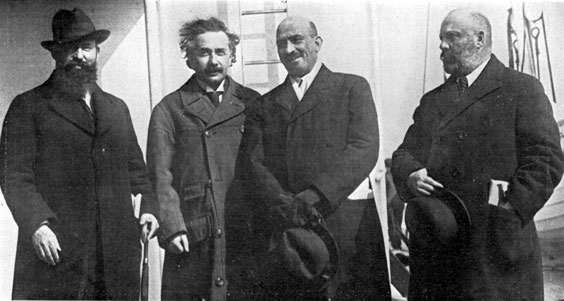
After publishing his theory of relativity, Albert Einstein became a global Jewish superstar. In 1921, bothered by an increasingly anti-Semitic Germany, he followed future Israeli president Chaim Weizmann to the U.S. to raise money for the Zionist cause, drawing throngs that would put Taylor Swift to shame. “I am doing whatever I can for my tribal brethren,” he said, “who are being treated so vilely everywhere.”
Not all Jews thought Einstein was using his power for good. Enthusiasm and apathy for the Weizmann/Einstein tour was divided along lines of Jewish class and ethnicity, or “downtown” vs. “uptown” Jews: many prominent German Jews, like Louis Brandeis, believed that increased assimilation was key to Jewish survival. (Brandeis, however, was a study in contradictions: Though he was elected head of the Provisional Executive Committee for Zionist Affairs between 1914-1918 and supported sending money to the Yishuv in Palestine, he was not in favor of political agitation).
But Einstein tried his best to seal the rift between Weizmann and Brandeis – against Weizmann’s wishes, he paid Brandeis a visit at his home in Boston and the two got along famously, although they did not exactly agree. Einstein returned to Europe even more convinced of the importance of the Jewish people’s cohesion: “The…mania of trying to…conform…has always been very repulsive to me.”
JTA has documented Jewish history in real-time for over a century. Keep our journalism strong by joining us in supporting independent, award-winning reporting.





